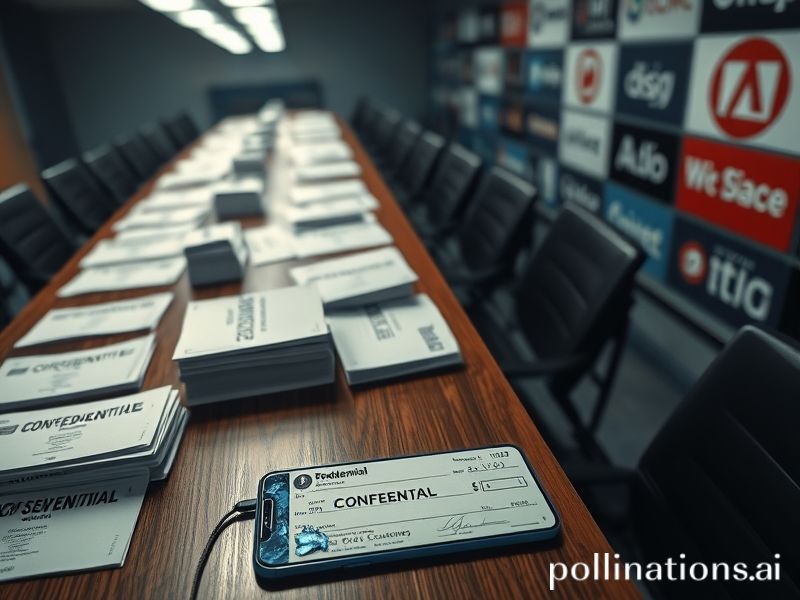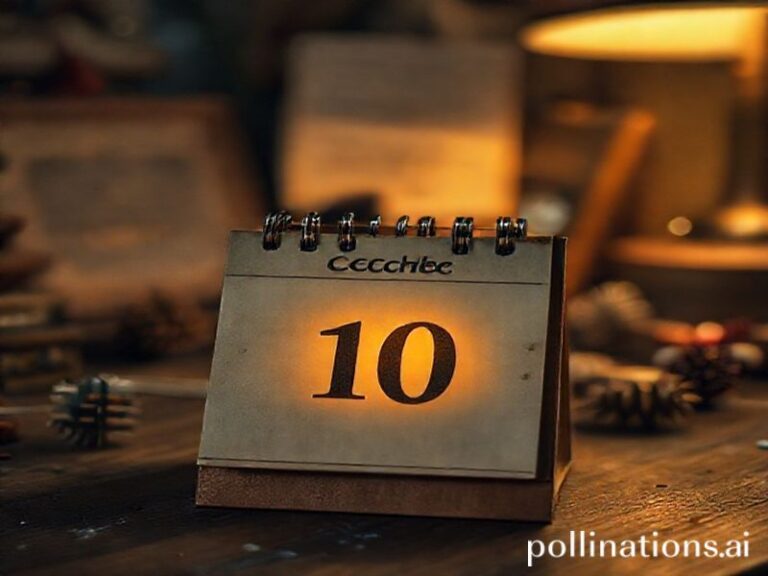Facebook’s $725M Global Privacy Settlement: When Your Digital Soul Gets Discounted
Facebook’s $725 Million Privacy Settlement: A Global “Oops, We Monetized Your Soul” Rebate
By Our Correspondent, fresh from deleting cookies (the browser kind, alas the biscuit jar is still full)
In the grand bazaar of geopolitics, where empires once traded spices and gunpowder, today’s hottest commodity is you—specifically, your taste in cat videos and your ex’s new phone number. Mark Zuckerberg’s latest apology sale, a $725 million privacy settlement, has now been rubber-stamped by a U.S. judge, effectively turning the world’s largest nation-state that isn’t on any map (population: 2.9 billion monthly users) into a discount outlet. International onlookers could be forgiven for wondering whether this is justice or simply a Black Friday for personal data.
The settlement stems from the Cambridge Analytica hullabaloo of 2018, when Facebook allegedly handed over 87 million profiles to a firm that weaponized personality quizzes into electoral nitroglycerin. While Americans queue up to claim their $30-ish cut—roughly the price of a decent pizza—foreign observers are left calculating what their own privacy is worth in local currency. Spoiler: in most places, it’s less than the pizza.
Europe, ever the moral older sibling with its GDPR brass knuckles, sniffed that $725 million is pocket lint compared to the €1.2 billion Meta was separately fined on the continent this year for shipping EU data to U.S. servers like an illicit FedEx of feelings. Brussels bureaucrats now sip espresso and muse that if every EU citizen affected claimed their theoretical share, they could almost buy a single tank of petrol—assuming they still drive internal-combustion cars by the time the paperwork clears.
Meanwhile, the Global South watches with the weary amusement of people who’ve had their data siphoned for years without even the courtesy of a coupon. In India, where WhatsApp (Meta’s chatty sibling) is effectively the operating system of democracy, regulators point out that $725 million could fund roughly 15 million street-food meals, or one modest cricket stadium nobody asked for. The Indian government’s own new privacy rules are still wobbling like a software update on a 2G connection.
Across Africa, where Facebook’s Free Basics once offered “the internet” as a gated suburb, civil society groups note that the settlement could bankroll a continent-wide digital-literacy campaign—assuming, of course, that the money ever leaves Delaware. Instead, local satirists joke that payouts might arrive in the form of Facebook Stars, redeemable only for virtual sheep on FarmVille 2045.
China, ever allergic to admitting foreign surveillance, chuckled behind its firewall. State media ran editorials reminding citizens that WeChat never needed to pay anyone off because, well, privacy is a bourgeois indulgence when the Party already knows your cholesterol level. In Russia, where VKontakte users shrugged at the news, the Kremlin offered to match the settlement ruble-for-ruble, then quietly clarified it would do so in non-fungible patriotic medals.
Latin American regulators, juggling inflation rates that look like phone numbers, calculated that each affected user could receive enough to buy, perhaps, a single avocado toast—hold the toast. Brazilian senators, fresh from grilling Meta executives like artisanal picanha, declared the settlement “a good start” while already sharpening subpoenas for the next inevitable leak.
And what does this mean for the average Homo Digitalis worldwide? In short, the market has spoken: your digital soul is worth about the same as a novelty coffee mug, albeit one that screams your political leanings into every algorithm within earshot. The settlement requires Meta to adopt “new privacy controls,” a phrase that translates in 37 languages to “another pop-up you’ll click ‘Accept’ while half-asleep.”
Still, the optics matter. International courts from Ottawa to Canberra are citing the payout as a yardstick for their own pending suits. Plaintiffs’ lawyers in London are already measuring Big Ben for scaffolding ads reading, “Your turn, luv.” The United Nations, ever aspirational, suggested channeling the money into a global data-dividend fund—an idea promptly filed under “adorable but unlikely,” right next to world peace and calorie-free croissants.
In the end, the settlement is less a fine than a cover charge for the ongoing masquerade ball where we are all both guests and hors d’oeuvres. Until the next leak—and there will be a next leak—enjoy your $30. Try not to spend it all on targeted ads for pizza. After all, they already know you’re hungry.







